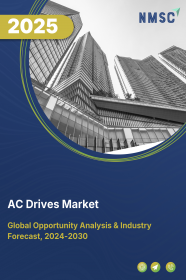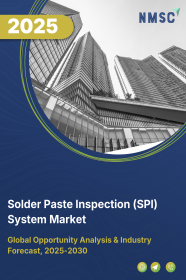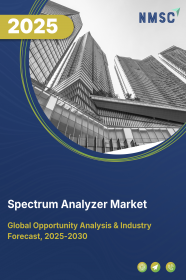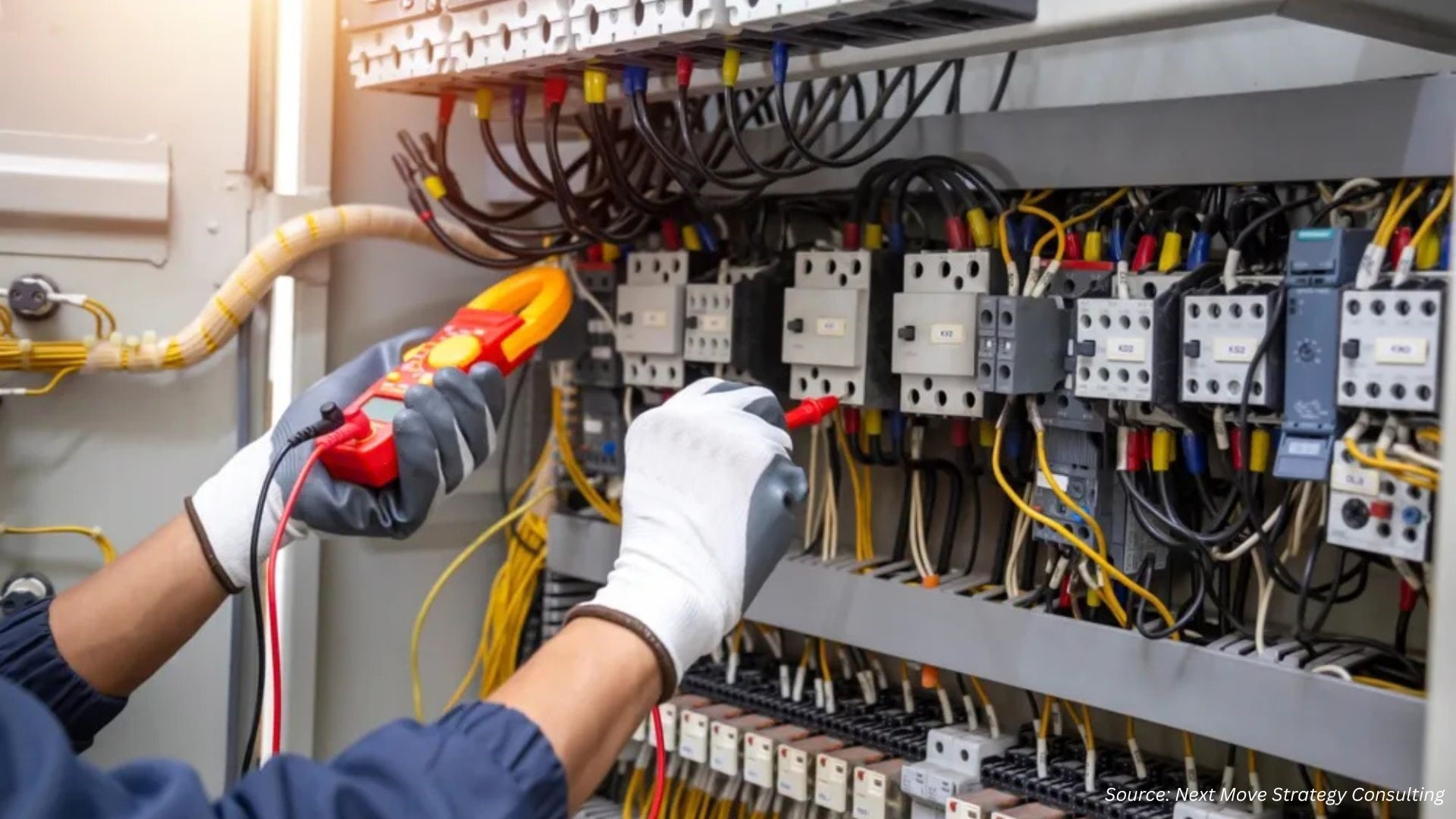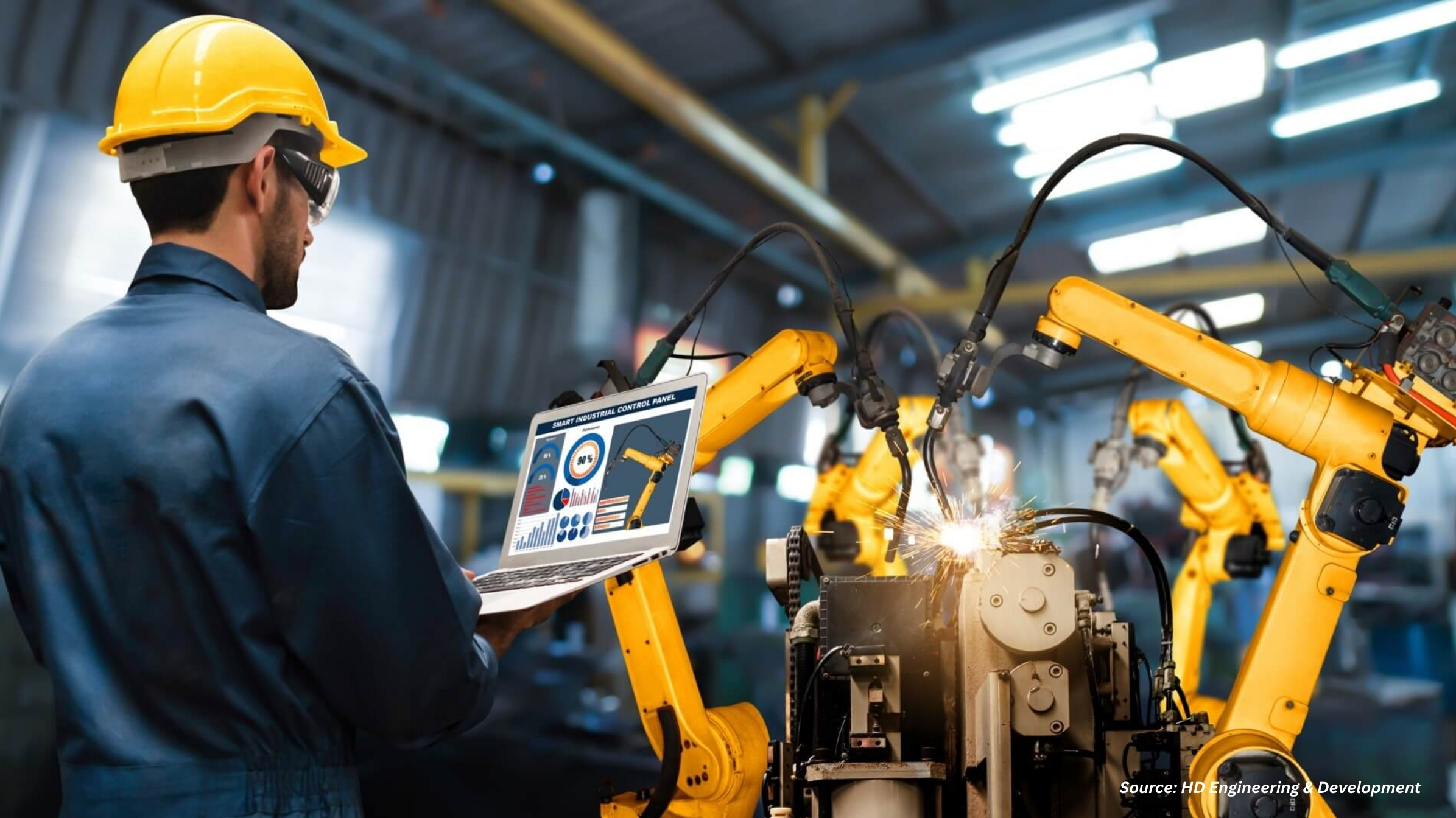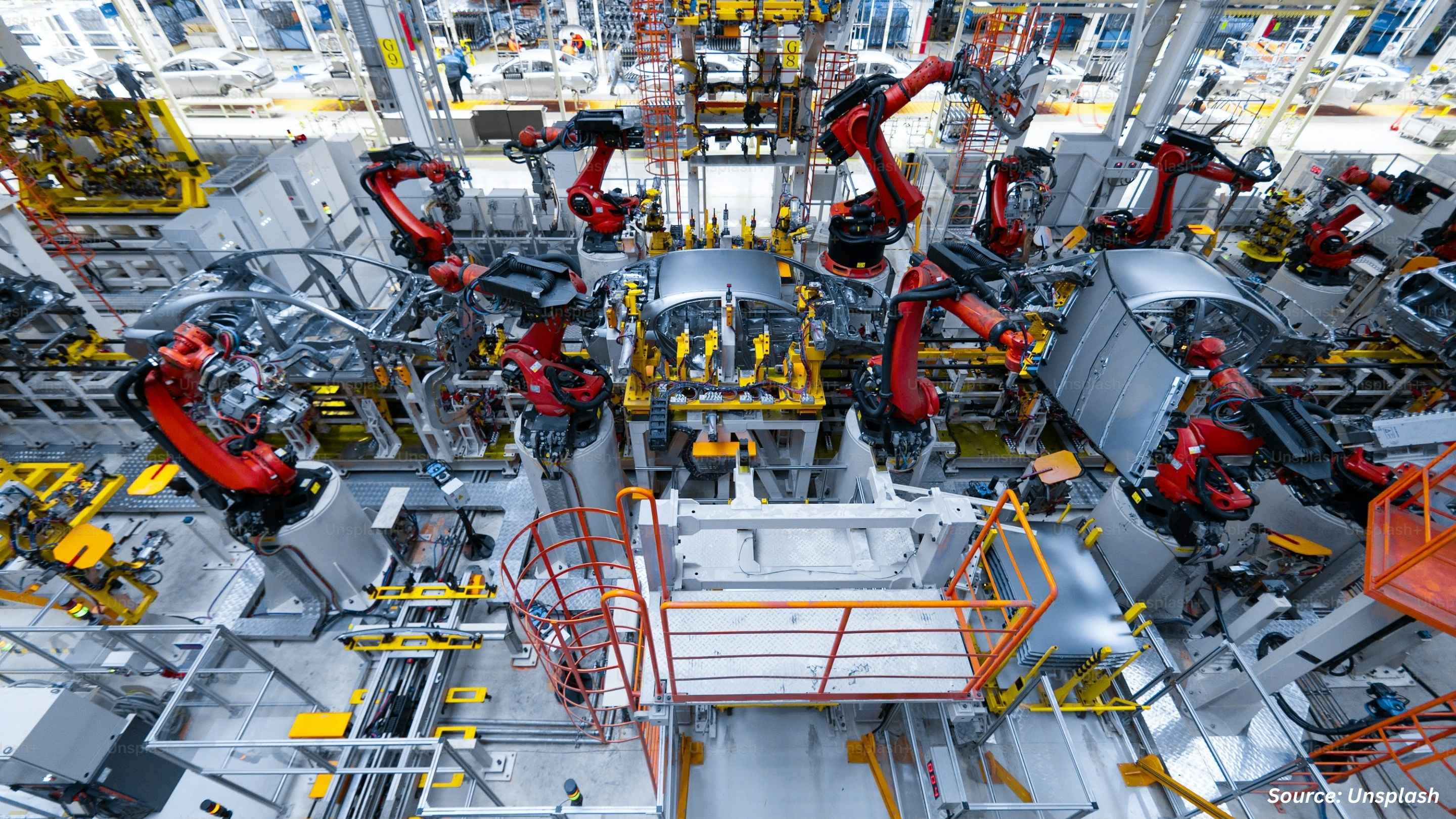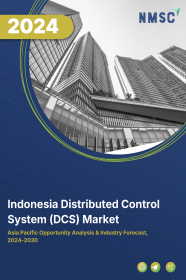
Indonesia Distributed Control System Market (DCS) by Component (Hardware, Software, and Services), by Architecture (Centralized Controller Systems, Hybrid / Distributed Hybrid Systems, and Fully Redundant High-Availability Systems), by Application (Batch, and Continuous Process), by Project Type (New Construction, Replacement, and Upgrade/Expansion), by Plant Size (Small, Medium, and Large), and by End User (Oil & Gas, and others) - Opportunity Analysis and Industry Forecast 2024–2030
Industry: Semiconductor & Electronics | Publish Date: 25-Jul-2025 | No of Pages: 174 | No. of Tables: 133 | No. of Figures: 78 | Format: PDF | Report Code : SE951
Market Definition
Indonesia Distributed Control System (DCS) Market was valued at USD 404.8 million in 2023, and is predicted to reach USD 857.5 million by 2030, with a CAGR of 11.2% from 2024 to 2030. A Distributed Control System (DCS) is a computer-based control system widely employed to oversee and automate industrial processes.
It comprises a network of controllers distributed throughout industrial facilities, facilitating communication and coordination in the automation of various processes. DCS systems find applications across diverse industries, including but not limited to the chemical, petrochemical, pharmaceutical, food and beverage, and power generation sectors.
These systems are particularly valuable in large-scale industrial processes demanding a high level of automation and control, such as those in oil refineries, chemical plants, and power stations. They serve to regulate and oversee a range of operations, including drilling, refining, blending, manufacturing, filtration, and disinfection, ensuring processes run with precision, efficiency, and safety.
The utilization of DCS systems offers numerous advantages, including enhanced process control, heightened efficiency, and improved safety, along with reduced downtime. DCS achieves this by distributing control functions across multiple controllers, providing redundancy and fault tolerance. This means that even in the event of a controller failure, industrial processes can continue to operate without disruptions.
DCS systems have evolved into indispensable components of modern industrial automation setups, substantially enhancing the reliability and efficiency of industrial processes. Furthermore, they contribute to safety by enabling real-time control and process monitoring.
They are capable of detecting potential safety hazards and promptly alerting operators to take corrective measures. DCS systems are also instrumental in predictive maintenance, facilitating proactive maintenance practices that minimize downtime. They collect and analyse data from sensors, offering valuable insights for continuous process improvement.
Powering Indonesia’s Future: DCS Technology Drives Renewable Energy Transition and Sustainable Growth
Indonesia's vast renewable energy potential—including solar, wind, hydro, and geothermal—has become a strategic focus in its national energy transition plans. The government's commitment to reducing greenhouse gas emissions and achieving its net-zero targets by 2060 is driving large-scale investment in renewable energy projects. This transition is significantly boosting demand for Distributed Control System (DCS) technology, which is essential for managing and optimizing renewable energy generation, storage, and distribution. DCS enables seamless integration of variable energy sources into the national grid by providing real-time data acquisition, advanced process control, and remote monitoring capabilities. These systems are critical in balancing grid loads, managing distributed assets, and ensuring stable and efficient power delivery. As Indonesia ramps up its clean energy development—particularly in remote and island regions—DCS solutions will play a key role in enabling decentralized, reliable, and intelligent energy systems, supporting both sustainability and national electrification goals.
Catalyzing Growth: DCS Empowers Efficient Control of Indonesia’s Booming Infrastructure Projects
Indonesia is experiencing rapid infrastructure expansion across sectors such as energy, oil and gas, water treatment, and industrial manufacturing, driven by initiatives under the National Strategic Projects (PSN) and the National Medium-Term Development Plan (RPJMN). This surge in infrastructure development is creating a growing need for advanced control systems capable of supporting complex and mission-critical operations. DCS technology is at the forefront of this transformation, providing the scalability, redundancy, and accuracy required for modern industrial facilities. Whether it's a new power plant, a refinery upgrade, or a smart water treatment system, DCS ensures precise operational control, enhances plant safety, and reduces downtime through predictive diagnostics. As Indonesia continues to build out its industrial base and critical infrastructure, the demand for reliable and intelligent automation systems like DCS will rise sharply, positioning the technology as a core enabler of national development and operational excellence.
Cybersecurity Threats Pose a Major Challenge to Indonesia's DCS Market Growth
As Indonesia accelerates its digital transformation and industrial automation, Distributed Control Systems (DCS) are becoming increasingly vulnerable to cyberattacks due to their integration with IT networks and reliance on real-time data exchange. Many industrial facilities in Indonesia, particularly in sectors like energy, oil & gas, and water treatment, are adopting connected and remote-access DCS systems, increasing the risk of cyber intrusions. Inadequate cybersecurity frameworks, limited awareness among operators, and outdated legacy systems in some plants heighten the threat. A successful cyberattack on DCS infrastructure could lead to unauthorized control over industrial processes, leakage of sensitive operational data, or shutdown of critical facilities—posing significant environmental, safety, and economic risks. The rising frequency of cyber incidents globally, combined with the increasing adoption of IIoT-connected DCS systems in Indonesia, underscores the urgent need for stronger cybersecurity measures to build industry confidence and prevent disruption in essential services.
Modular and Scalable DCS Architectures Open New Avenues for Industrial Automation in Indonesia
The emergence of modular, flexible, and scalable DCS solutions presents a significant growth opportunity for Indonesia’s industrial automation market. Traditional DCS systems, which are often rigid and capital-intensive, are being replaced or supplemented by modern modular DCS platforms that allow easier integration, faster deployment, and cost-effective scalability. This is especially valuable in Indonesia, where many small-to-medium enterprises (SMEs) in sectors like manufacturing, food processing, and pharmaceuticals are seeking automation but face budget and technical constraints. Modular DCS systems enable phased implementation, easier upgrades, and customized automation setups that suit the specific needs of diverse industries without incurring high upfront costs. These systems also enhance interoperability through standards like Module Type Package (MTP) technology, facilitating integration with third-party devices and expanding functionality over time. Companies such as ABB and Siemens have already introduced modular DCS offerings suited for industries with evolving needs. As Indonesia prioritizes smart manufacturing under initiatives like Making Indonesia 4.0, the demand for flexible and modular DCS solutions is expected to grow rapidly, particularly in energy, mining, biotech, and infrastructure-related industries.
Competitive Landscape
The Indonesia distributed control system (DCS) industry includes several market players such as PT Yokogawa Electric Indonesia, Emerson Electric Co., Honeywell International Inc., ABB, Siemens, Schneider Electric, Mitsubishi Electric Corporation, PT. Rockwell Automation Indonesia, General Electric Company, Hitachi Industrial Products, Ltd., Valmet, Endress+Hauser, PT Industrial Control Indonesia, PT Fuji Electric Indonesia, OMRON CORPORATION, and others.
Indonesia Distributed Control System (DCS) Market Key Segments
By Component
-
Hardware
-
Controller
-
I/O
-
Workstation
-
Networking Hardware
-
-
Software
-
Service
-
Integration and Implementation
-
Managed Services
-
Support and Consultation
-
By Architecture
-
Centralized Controller Systems
-
Hybrid / Distributed Hybrid Systems
-
Fully Redundant High-Availability Systems
By Application
-
Batch
-
Continuous Process
By Project Type
-
New Construction
-
Replacement
-
Upgrade/Expansion
By Plant Size (Controller I/O)
-
Small (Greater than 5000 I/O)
-
Medium (5000 to 15000 I/O)
-
Large (Less than 15000 I/O)
By End User
-
Oil & Gas
-
Upstream
-
Midstream
-
Downstream and Refineries
-
-
Chemicals & Refining
-
Energy & Power
-
Thermal Power Plants
-
Renewable and Battery Storage Plants
-
Nuclear Power Plants
-
-
Pulp & Paper
-
Metals & Mining
-
Pharmaceutical & Biotech
-
Food & Beverages
-
Cement & Glass
-
Water & Wastewater
-
Others
Key Players
-
PT Yokogawa Electric Indonesia
-
Emerson Electric Co.
-
Honeywell International Inc.
-
ABB
-
Siemens
-
Schneider Electric
-
Mitsubishi Electric Corporation
-
PT. Rockwell Automation Indonesia
-
General Electric Company
-
Hitachi Industrial Products, Ltd.
-
Valmet
-
Endress+Hauser
-
PT Industrial Control Indonesia
-
PT Fuji Electric Indonesia
-
OMRON CORPORATION
REPORT SCOPE AND SEGMENTATION:
|
Parameters |
Details |
|
Market Size in 2023 |
USD 404.8 Million |
|
Revenue Forecast in 2030 |
USD 857.5 Million |
|
Growth Rate |
CAGR of 11.2% from 2024 to 2030 |
|
Analysis Period |
2023–2030 |
|
Base Year Considered |
2023 |
|
Forecast Period |
2024–2030 |
|
Market Size Estimation |
Million (USD) |
|
Growth Factors |
Increasing energy demand Increasing adoption of Industry 4.0 technologies. |
|
Companies Profiled |
15 |
|
Market Share |
Available for 10 companies |
|
Customization Scope |
Free customization (equivalent up to 80 working hours of analysts) after purchase. Addition or alteration to country, regional, and segment scope. |
|
Pricing and Purchase Options |
Avail customized purchase options to meet your exact research needs. |




















 Speak to Our Analyst
Speak to Our Analyst



